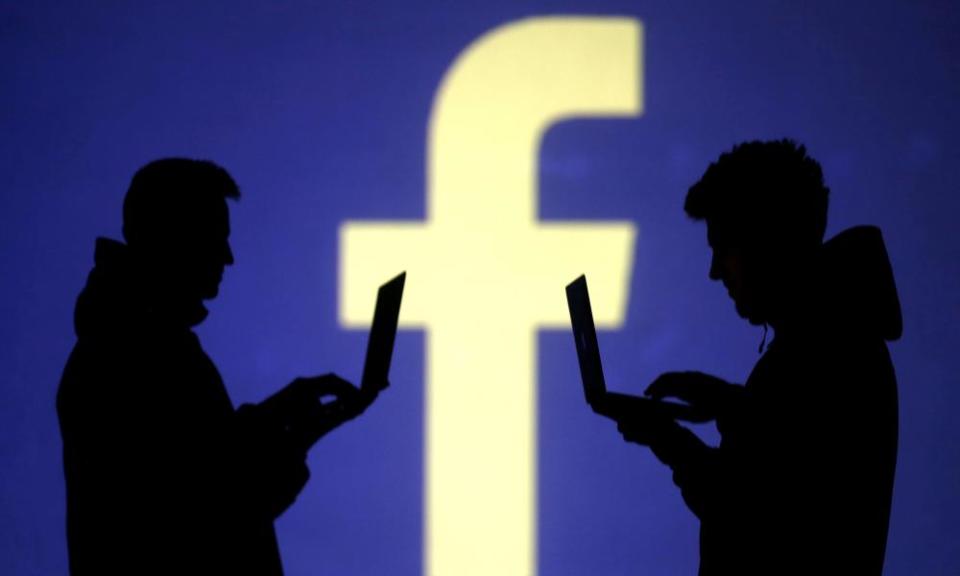Facebook threatens the economy, health and democracy
Transparency and technocratic reforms will not be a sufficient response to this challenge – at the end of the day, what’s at stake is far more important than a few likes

Facebook recently reminded me that I’ve been on the social network for 15 years. I normally pay little attention to those anniversary notices, but this time I paused to think about how much had changed in the decade and a half since Facebook was founded – and the roller coaster of feelings I’ve had toward the tech platform over that time. Excitement about its promise, pride in its millennial origins, gratitude for the ease of staying in touch with old friends, equal parts worry and admiration over its “move fast and break things” philosophy, frustration at its approach to privacy, apprehension over its addictiveness, concern by its manipulative use by Russia, the list goes on. It’s been a wild 15 years.
Around the same time as I got that notification, I was reading Roger McNamee’s well-written new book, Zucked: Waking up to the Facebook Catastrophe. McNamee was an early investor in Facebook and an advisor to Mark Zuckerberg and Sheryl Sandberg. But over time – and particularly in the weeks before the 2016 election – he grew concerned that the platform designed to bring the world together was being used to stoke confusion and division. McNamee reached out to the company and was unsatisfied with the response. So he dug deeper and deeper into problems with the social network – and eventually went public with his criticism. Zucked is not only the personal odyssey of a former Facebook investor but an insightful case study in the range of challenges that the platform – and all tech platforms – raise for society.
McNamee offers many critiques of Facebook, but his central argument is that Facebook is a threat to the economy, public health, and democracy. The economic critique rests on the problems of monopoly capitalism, including, for example, Facebook’s ability to buy up potential rivals like Instagram and WhatsApp before they might have had a chance to challenge its dominance. The democracy critique is in the news almost daily. Democracy cannot survive without debate and deliberation based on shared truths. But NewsFeed pushes us into “filter bubbles,” so we increasingly are walled off from different opinions. And that’s in addition to the trolls and bots, fake pages and groups, misinformation and outright lies. McNamee argues that this has had an impact not just in America, but all around the world.
The public health critique often gets less attention. McNamee describes various tactics for how tech companies get people to use their products more, even to the point of addiction. For example, NewsFeed relies on the “bottomless bowl” – an unending list of posts that keeps people in the site for longer. Notifications distract from the task at hand and entice users back into the app. Tagging and Likes tread on our human need for social approval and reciprocity. McNamee argues that these and other design strategies have a profound effect on human happiness and fulfillment and that we are worse off because of how they are configured.
These criticisms pack a strong punch. But as important in McNamee’s account is his explanation of the conditions that enabled Facebook and other companies to threaten the economy, democracy, and public health. The first is that open source products and centralized resources (like the cloud) meant that startups could be leaner than ever before and venture capitalists could more easily identify winning and losing investments. Second, libertarianism was on the rise, particularly among executives and investors in Silicon Valley. “Under libertarianism,” McNamee says, “no one needs to feel guilty about ambition or greed.” This highly individualistic approach thus “absolves practitioners of responsibility for the impact of their actions on others.” The third shift was in political economy, in which neoliberalism became dominant. Politicians increasingly held that markets were the best regulator of social affairs and that the government should stay out. Deregulation or non-regulation led to these firms being able to gain in market power and monopolize their sector.
This has had an impact not just in America, but all around the world
Today, even the titans of tech have acknowledged that their industry requires some kind of regulation. The question for them – and for all of us – is what those regulations should look like. And this is one reason why Zucked and books like it are so important. By identifying a variety of problems and the conditions that fostered them, this corporate case study helps build a foundation for eventual reform. After reading Zucked, it is evident that transparency, nudges, and other technocratic changes will not be a sufficient response to the scope of the challenge. The question is whether reformers, regulators, and citizens will have the courage to fight for broader, structural changes. Because at the end of the day, what’s at stake is far more important than a few Likes. It is the future of our economy, our society, and our democracy.
Ganesh Sitaraman is a Guardian US columnist. He is the author of The Crisis of the Middle-Class Constitution

